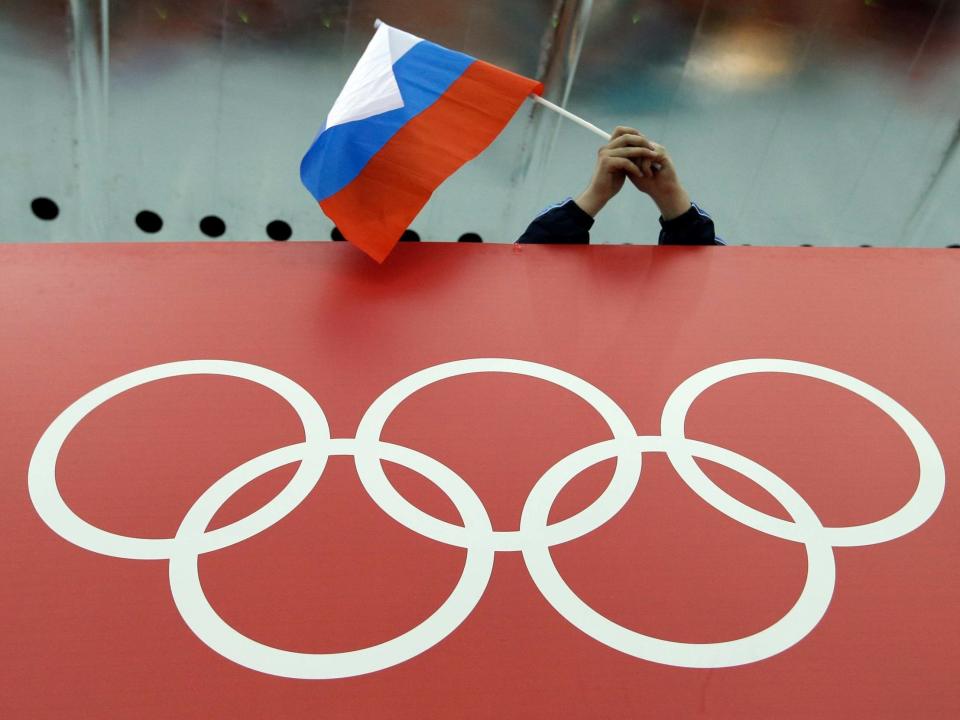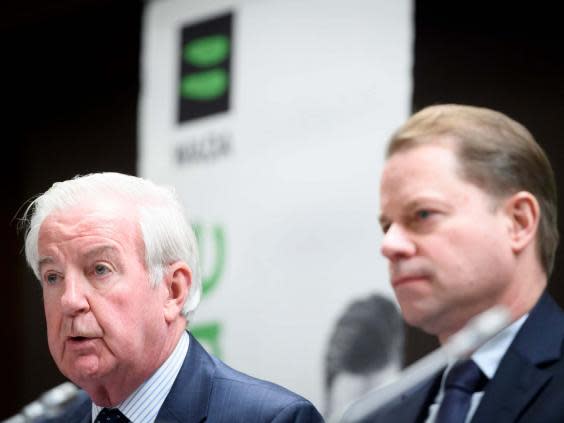Russia doping ban: What we know, what we don’t know and how will it impact Olympics, World Cup and Euro 2020?

Russia has been banned from hosting and competing in major sporting events by the World Anti-Doping Agency [Wada] for the next four years, but what does that mean for Russian athletes?
According to a Wada statement issued on Monday following a meeting of its executive committee in Lausanne, the Russian Anti-Doping Agency [Rusada] will have its authentication suspended for a four-year period, starting at a date yet to be confirmed by the global anti-doping body.
Wada has issued a lengthy statement outlining why Russia has been suspended from major sporting events for the second time in the space of four years, having already been banned from the 2016 Rio Olympics and 2018 Pyeongchang Winter Olympics due to a state-sponsored doping programme.
It has also listed a series of consequences that will take effect throughout the next four years, though Rusada do have the provision to appeal the ruling which would result in the case being referred to the Court of Arbitration for Sport.
Here’s a breakdown of the key implications for Russian teams and athletes.
Russia banned from Olympics and World Cup
Once Wada informs Russia of the four-year ban start date, they will not be allowed to compete as a nation under the Russian title, national flag or anthem at any major sporting event.
A ‘major sporting event’ is determined by Wada as the major sporting organisations who adhere to the code. This includes the International Olympic Committee [IOC] and Fédération Internationale de Football Association [Fifa], meaning that all competitions governed by them within the four-year window will be included in the ban. Other governing bodies recognised by Wada includes the IAAF [athletics], FISA [swimming], ITF [tennis], UCI [cycling] and World Rugby.
But while the ban would apply to the World Cup itself, it does not apply to qualification for the competition, meaning Russia would still be allowed to compete under their own name, anthem and flag, and should they qualify they would then need to compete under a neutral name.
What about Euro 2020?
Russia have not only qualified for the European Championship next summer but are also scheduled to host three matches in Group B at St Petersburg’s Krestovsky Stadium [in the form of Russia’s games against Belgium and Finland as well as Finland vs Belgium] along with a quarter-final.
However, Uefa is not acknowledged by Wada as a major sporting organisation, and as a result Russia remain eligible to compete and host within European competition.
Hosting events
Russia is not allowed to host – or bid for – any major sporting tournaments until the ban is up. This would heavily impact on Russia’s declaration that it intends to bid for the 2027 Rugby World Cup, which is due to be finalised in 2021 and would fall within their suspended period.
Wada has also ruled that Russia cannot bid for the 2032 Olympic Games as the bidding process is expected to take place during their four-year ban. St Petersburg, Kazan and Sochi had all been considered as possible host cities.
Sporting governance
Russian Government officials/representatives may not be appointed to sit and may not sit as members of the boards or committees or any other bodies of any Code Signatory [or its members] or association of Signatories.

Attendance
As well as being unable to sit on any governing board or committee, Russian Government officials/representatives are banned from participating or attending any of the following events:
Summer and Winter Youth Olympic Games
Summer and Winter Olympic and Paralympic Games
Any other event organised by a major event organisation
Any World Championships organised or sanctioned by any Code Signatory
Flag
The Russian flag is not allowed to be flown at any major sporting event in the next four years.
But can Russian athletes compete under certain stipulations?
Both Russian athletes and their support staff will be allowed to compete as long as they can prove they are not implicated in any way by Rusada’s non-compliance. This includes any mention in the McLaren reports – which initially exposed the scale of Russia’s doping programme – previous positive tests and if their data is included among that believed to have been tampered with.
They must also compete under neutral or international status and without the Russian national anthem, which was witnessed at both the 2016 Rio Olympics and 2018 Winter Olympics with Independent Olympic Athletes.
The issue becomes much cloudier where team sports are concerned, such as the Football and Rugby World Cups, as Wada’s compliance chair Jonathan Taylor confirmed that it will be handled on a sport-bysport basis. Regarding the 2022 Qatar World Cup, Taylor said on Monday: "If [Fifa] want to put in place a mechanism for athletes who are not tainted they can do that. It will be for Fifa to implement but they will have to do so in conjunction with Wada. But there will be no flag or anthem."
A large fine
Rusada must pay all of Wada’s legal costs incurred since January 2019 as well as a fine of either 10 per cent its 2019 earnings or $100,000 [the lesser of the two], which stands as the maximum fine that Wada is allowed to impose under their regulations.
What next?
Rusada were notified by Wada of the ban on Thursday 5 December, giving them a 21-day period to notify any intention to appeal. If they decide to appeal by the deadline on 26 December, the case will be referred to the Court of Arbitration for Sport’s ordinary arbitration division to decide whether the ban will be imposed or not – a decision that would be binding and deemed as final.
If Rusada does not challenge the ban by 26 December, then the decision becomes final and there is a 21-day period for parties under Rusada’s remit to appeal the ban, which would see the case referred to the Court of Arbitration for Sport’s appeals arbitration division.
Wada will also liaise with those affected by the ban to clarify the next steps, and have decided that due to the close proximity of the competition, the ban will not apply to the Youth Olympic Games in Lausanne that begin in January.

 Yahoo News
Yahoo News 